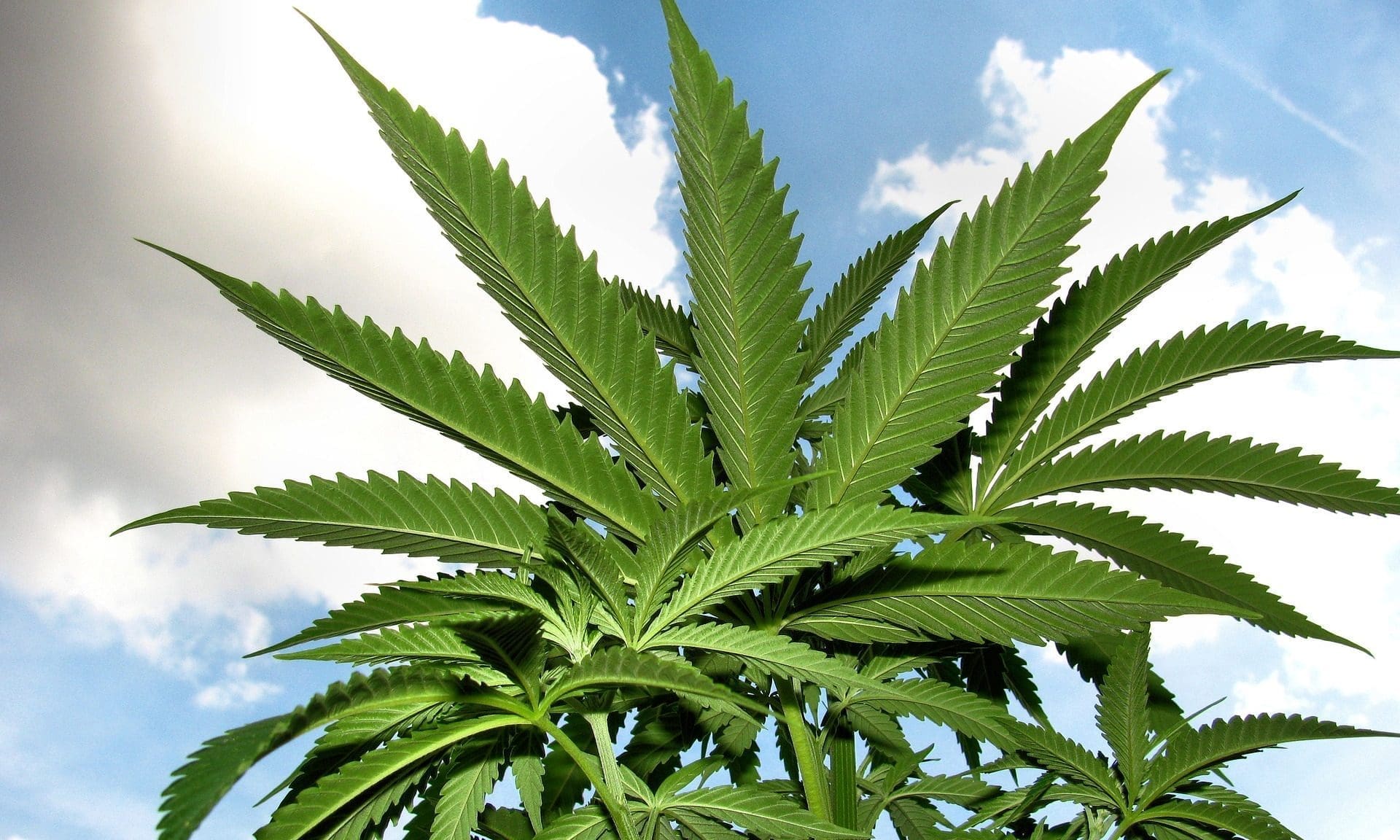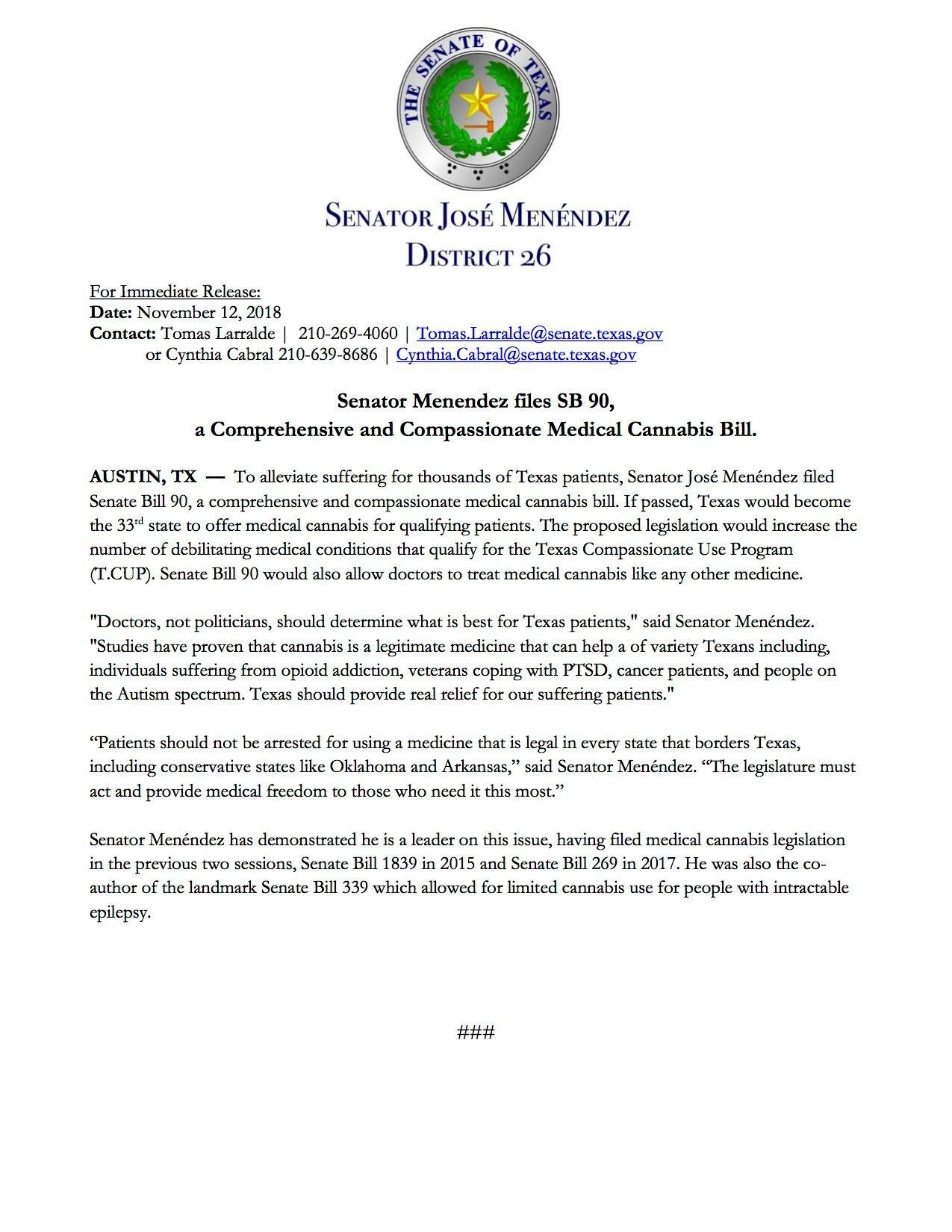Guides
Texas Lawmaker Files Marijuana Decriminalization Bill

Possessing small amounts marijuana would no longer come with the threat of jail time if a Texas Democratic representative—and the state’s Republican Party—have their way.
On Monday, the pre-filing period for the upcoming 2019 legislative session, which begins in January, kicked off, and one of the first bills put forward is a proposal to decriminalize cannabis.
“Civil penalty legislation is the first thing I’ve filed on the first day of filing for the 86th Session. There’s been an incredible swell of bipartisan support since last session, and the official Texas Republican and Democratic platforms both approve of this kind of reform now,” Rep. Joe Moody, the bill’s sponsor, said in a press release. “I’m optimistic that this will be the session we finally see smarter, fairer marijuana laws in Texas.”
In June, the Texas Republican Party adopted a platform plank endorsing marijuana decriminalization for the first time.
“We support a change in the law to make it a civil, and not a criminal, offense for legal adults only to possess one ounce or less of marijuana for personal use, punishable by a fine of up to $100, but without jail time,” the state GOP platform now reads.
Advocates believe that 2019 could finally be the year for far-reaching marijuana reform in Texas.
“The time has come for marijuana law reform,” Heather Fazio, director of Texans for Responsible Marijuana Policy, said. “Over the last several years, we’ve seen increasing support and this legislative session offers a unique opportunity for reform. Just as support for reform transcends partisan politics among Texas voters, we also see unprecedented bipartisan support at the Capitol.”
During a debate with his re-election opponent in September, Gov. Greg Abbott (R) for the first time expressed openness to marijuana law reform.
“One thing I don’t want to see is jails stockpiled with people who have possession of a small amount of marijuana,” he said.
Possessing small amounts marijuana would no longer come with the threat of jail time if a Texas Democratic representative—and the state’s Republican Party—have their way.
On Monday, the pre-filing period for the upcoming 2019 legislative session, which begins in January, kicked off, and one of the first bills put forward is a proposal to decriminalize cannabis.
“Civil penalty legislation is the first thing I’ve filed on the first day of filing for the 86th Session. There’s been an incredible swell of bipartisan support since last session, and the official Texas Republican and Democratic platforms both approve of this kind of reform now,” Rep. Joe Moody, the bill’s sponsor, said in a press release. “I’m optimistic that this will be the session we finally see smarter, fairer marijuana laws in Texas.”
In June, the Texas Republican Party adopted a platform plank endorsing marijuana decriminalization for the first time.
“We support a change in the law to make it a civil, and not a criminal, offense for legal adults only to possess one ounce or less of marijuana for personal use, punishable by a fine of up to $100, but without jail time,” the state GOP platform now reads.
Advocates believe that 2019 could finally be the year for far-reaching marijuana reform in Texas.
“The time has come for marijuana law reform,” Heather Fazio, director of Texans for Responsible Marijuana Policy, said. “Over the last several years, we’ve seen increasing support and this legislative session offers a unique opportunity for reform. Just as support for reform transcends partisan politics among Texas voters, we also see unprecedented bipartisan support at the Capitol.”
During a debate with his reelection opponent in September, Gov. Greg Abbott (R) for the first time expressed openness to marijuana law reform.
“One thing I don’t want to see is jails stockpiled with people who have possession of a small amount of marijuana,” he said.
“I would be open to talking to the legislature about reducing the penalty for [marijuana] possession of two ounces or less from a Class B misdemeanor to a Class C misdemeanor,” Abbott said.
While that would fall short of the decriminalization proposal put forth by Moody and supported by advocates, it signals that cannabis reform is now possible in the Lone Star State.
Moody’s bill would eliminate the threat of arrest, jail time and a criminal record for possessing less than an ounce of marijuana.
Several other pieces of marijuana legislation were also pre-filed on Monday, including several to expand the state’s existing very limited medical cannabis program, one of which would put a constitutional amendment on the ballot for voters to decide on in 2019.



